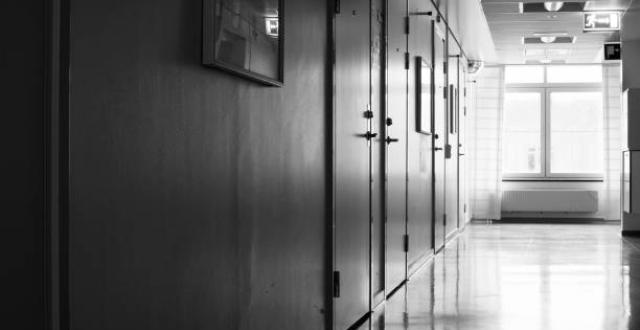"Pont de Connexion": Making connections for a more successful hospital discharge
A unique project designed to give hospitalized patients under protective observation a connection to the outside world during their stay, supporting reintegration and, above all, helping to combat isolation and stigma.
A unique project has been developed at the Erasmus Hospital’s South-East Psychiatry Unit. In partnership with the non-profit organisation Similes and the Family Home Hospital Support (FHS) network, the team is launching the “Pont de Connexion" (Connecting Bridge) initiative.
The aim is to provide hospitalised patients under protective observation with a connection with the outside world while they are still in hospital so as to support reinsertion and, above all, combat isolation and stigmatisation when they leave.
A new breath for an often misunderstood department
On the 9th floor of the Erasmus Hospital H.U.B, the South-East Psychiatry Unit cares for people suffering a severe crisis who are hospitalised under observation at the request of a judge. These are patients whose mental suffering is such that, temporarily, they need a sheltered but secured environment. A necessary environment certainly, but one that isolates them from the outside world
“Psychiatry is often viewed as a closed and even intimidating world,” explains Axelle Dejardin, a clinical psychologist. “So what we are trying to do here is recreate connections, understanding and to reach out to those who are living with psychiatric problems without reducing them to their diagnosis.”

A unique alliance with the exterior
The Pont de Connexion project, to be launched in October 2025, was born of a common conclusion, shared by colleagues exercising various functions, in particular: Axelle Dejardin, psychologist; Mariana Athanassiu, specialised educator; Jalila Nsis, psychiatric nurse ; Sigried Apper, social worker; Ulrich Tchamba, psychiatric nurse; Dr. Youssouf Ramdani, psychiatrist. Too often, after the 40 days under observation, patients are discharged without connections or support. This increases the risk of relapse and rehospitalisation.
It is at this point that the non-profit Similes and the Family Home Hospital Support (FHS) network, a collective of psychosocial workers trained to listen, can be so crucial in offering support for the patients and also their loved ones.
Their approach? Open Dialogue: a model developed in Finland and based on transparency, inclusion, respect for the rhythm of the individual and a shared discourse. The patients are actors in their own care and can invite to meetings persons from their everyday life: friends, neighbours, GP, family.
Creating a bridge when in hospital, not after
This project permits circle meetings, at the hospital itself, with certain patients, the Pont de Connexion team and the FHS network, in a reassuring space that invites dialogue. “We do not necessarily talk about the treatment but about life, plans, specific difficulties,” explains Mariana Athanassiu.
“The idea is to connect the person to their resources, to reactivate links, so that being hospitalised under protective observation does not sever connections.”
Every other Friday patients can attend an information session at the hospitalisation unit. The other Friday is devoted to meetings between the patient, the Pont de Connexion team and the FHS network.

A pilot project... and a collective ambition
Support of this kind is rare at a general hospital, especially in a context of being placed under observation in which liberties are restricted. Yet the team believe in the positive impact of this project for the well-being of patients and care staff, the fluidity of care and a reduction in repeated hospitalisations. This symbolic bridge also sends a strong signal in combating stigmatisation.
“Psychiatric disorders can affect anyone. We want to break the silence, show that there are human solutions that respect the individual and bring hope.”
South-East Unit: crises and humanity
The unit receives adults experiencing a severe crisis (psychoses, serious mood disorders, addictive behaviour, etc.). In principle the period of hospitalisation is 40 days, decided by a justice of the peace. But the reality is more complex. “They are often patients without resources, without networks,” explains Jalila Nsis, a nurse.
Without resources some patients with a multiple diagnosis or in a vulnerable situation find it hard to find a place in an appropriate unit. The team therefore tries to respond to somatic and psychiatric emergencies with a lot of creativity and solidarity.
For a more inclusive psychiatry
To this end, a number of therapeutic activities are also made available to patients and hospital staff: creative workshops, relaxation sessions and movement workshops. This is a way of tearing down invisible walls, between disciplines, professions and pathologies.
The unit would like to combat enduring clichés about psychiatry and give it a new image. An information screen will be installed in the entrance lobby and brochures will be made available. The team hopes that other hospitals will also decide to take this path.
The Pont de Connexion project embodies a simple belief: psychiatry can and must be a place for rehabilitation, a coming together in dialogue and meaning. “Illness does not erase the person. It must never erase the individual’s rights, dignity or need for contact,” concludes Axelle Dejardin.

Pont de Connexion – what to remember:
|
